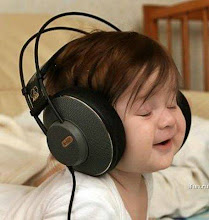Shepherd Moons By Enya (1991)
So, it’s been a little bit since last I wrote. I know the public is clamoring for more discourse from on high, so I must resign myself to their wishes.A Random CD Review from the Stutzman Memorial Library
Shepherd Moons by Enya (1991)
#194 in the Memorial Library is Enya’s Shepherd Moons. There is a lot of personal guilt and shame associated with this album. For one, Enya’s music is a bit of a guilty pleasure for me. There are some musical circles in which Enya is considered “uncool” listening-- fodder for upwardly mobile adult-contemporary folks and new-agey crystal worshippers. And of course, the general pleasantness of her music is anathema to anyone with a commitment to rock n’ roll of any kind. I’m not exactly sure who decides what should count as a guilty pleasure and what should count as a regular pleasure. Is there an actual person whose job title is “Tastemaker?” Don’t know.
But here’s what I know about this album. It’s simultaneously simple and complicated. The simplicity is demonstrated in how she serves up melodies on a silver platter in strophic forms, (i.e. verse-chorus, repeat as desired), with uncomplicated harmony that never strays further afield than the occasional secondary dominant. The two best examples of this are found in the traditional songs “How Can I Keep From Singing,” and “Marble Halls”-both fine tunes that sound kind of updated with the Enya treatment.
And that’s exactly where the complexity comes in—the pristine production style. I think that’s what I find so fascinating about Enya’s music. It’s a combination of state-of-the art electronics, (for the time), all kinds of digital synth textures and artificial reverbs, sounding alongside real world acoustic instruments. (The cornet solo on “Evacuee” is just gorgeous.) But all of the electronic sounds are in service to the songs, and therefore, are quite subtle. This ain’t a techno album.
The first time I heard this disc, I didn’t like it. The soft, pleasant sounds and her elf-like voice were unnerving to me. I came from a mostly rock n’ roll pedigree, in which nice sounds were usually just a temporary catch-your-breath moment before the crushing distorted guitars and screaming, angst-ridden vocals came back in. I reached a real aesthetic epiphany when I realized this subconscious uneasiness I had with her music. Music this fragile just had to foreshadow noisy angst. I was waiting for the explosion. Waiting for Enya to scream.
But it never happened.
Maybe this Enya lady was all right with leaving the angst out and just wanted to make beautiful music. Funny how foreign that idea was to me and my late junior high brain. Once I had that realization, I could relax and just appreciate the beauty. Now that I think about it, maybe this Enya music prepared me for Reich-ian minimalism six or seven years later.
I’ve also kind of felt sorry for Enya. Her process of making music seems so solitary and lonely-just her, a piano, and a room full of synths, most of the time. I think that one of the reasons her music is so recognizable is that it’s so personal. I don’t know that she ever collaborates with anybody in the creative process. As a musician myself, that’s a blessing and a curse. It would be a lot simpler to not have to deal with other musicians, not have to compromise or try to explain your ideas. But at the same time, you would miss out on some of the rare “magical” moments that arise in the process of performing music with other people.
Like I said at the outset, this album is a guilty pleasure for me. I think there are some really beautiful moments captured on here. But I also have some guilt in knowing that I have “permanently borrowed” it from my parents. But that’s all right; my mom stole my disc of Chopin’s Nocturnes and Preludes.


3 Comments:
"I’m not exactly sure who decides what should count as a guilty pleasure and what should count as a regular pleasure. Is there an actual person whose job title is “Tastemaker?' "
Pitchfork.
I use to play this to go to sleep. Now my wife doesn't let me sleep to music.
I don't steal from my parents. I call them earlier inheritance gifts. Also if I buy them anything really nice, I figure it is coming back someday. Just kidding. Seriously.
I guess you're right, Jay. Critics in general seem to set the agenda of musical concerns.
However, Pitchfork has always seemed to me to be on the marginal side. I kind of see them as the uber-snobs of music snobs.
For instance, there's a big difference between what is acceptable to a Pitchfork music critic vs. say, a critic for People magazine or even Rolling Stone.
Post a Comment
<< Home